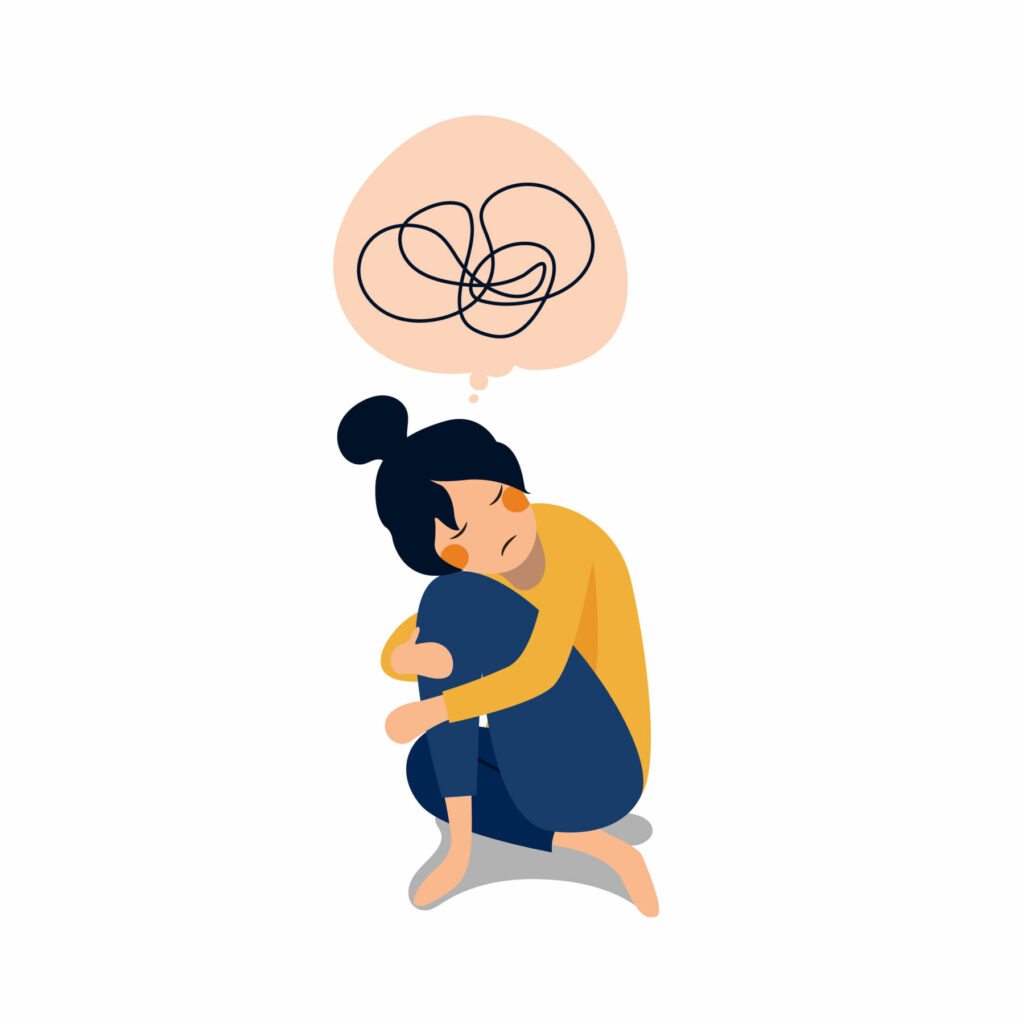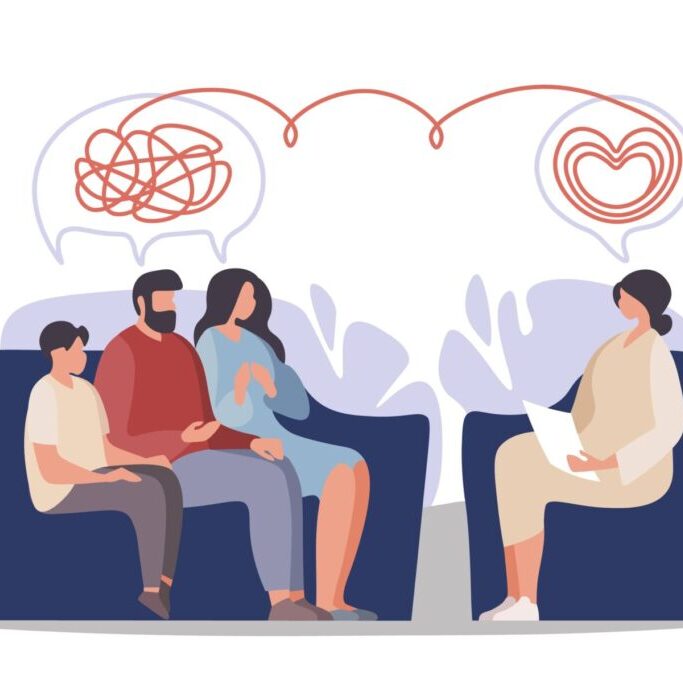11 Myths and Facts about Anxiety

There continues to be a stigma around mental health, particularly anxiety therapy, which often leads to anxiety not being openly discussed. This lack of dialogue fosters misunderstandings and ongoing myths about anxiety.
These misconceptions not only misinform the public but also create barriers that prevent individuals from seeking care. By understanding and addressing these myths, we can work towards a more informed and compassionate approach to anxiety and promote the appropriate use of anxiety therapy as a vital resource for those in need.
1. Everyone Suffers Anxiety
Fact. While it is true that many individuals may experience feelings of anxiety at some point, it’s essential to differentiate between temporary stress or worry and chronic anxiety disorders. Anxiety disorders involve intense and prolonged fear or worry that can be linked to specific anxiety triggers.
The response to these triggers for anxiety can be overpowering and often requires professional intervention. Unlike general feelings of anxiety that everyone may encounter, anxiety disorders are a medical condition that may necessitate intervention.
According to research conducted by Harris and Lindholm (2022), anxiety therapy techniques can be incredibly effective at helping individuals understand and manage their triggers for anxiety.
Therefore, while anxiety is a common emotion, the presence of an anxiety disorder is a more serious condition that needs to be addressed with appropriate therapy and attention to the unique anxiety triggers of the individual.
2. Anxiety Will Just Go Away Without Doing Anything
Fact. Anxiety typically requires intervention to subside. Most anxiety is related to underlying ways of thinking and acting that maintain it. Without anxiety therapy or medication, these underlying triggers for anxiety can persist and keep the anxiety from resolving. According to the Anxiety and Depression Association of America (ADAA, 2020), proper treatment, including therapy, medication, or a combination of both, can significantly alleviate symptoms for most clients. Ignoring or minimizing anxiety without seeking professional help often leads to a worsening of symptoms and can affect overall well-being.
3. You Should Avoid Anxiety in Order to Feel Better
Fact. Avoidance is often the most common response to anxiety triggers, but this isn’t an effective solution. Approaching triggers to anxiety can be the most effective antidote. Research conducted by Taylor et al. (2021) highlights the effectiveness of confronting anxiety triggers through exposure therapy, a type of anxiety therapy, in reducing fear and anxiety. This therapeutic approach helps individuals experience triggers for anxiety in a calm way, thus reducing distress and enhancing their overall quality of life.
4. Only People with Panic Attacks Have an Anxiety Disorder
Fact. Anxiety disorders include social anxiety disorder, phobias, and generalized anxiety disorder, not just panic attacks. Furthermore, panic attack symptoms, although distressing, will not physically hurt you, a fact that goes against the common perception.
Anxiety therapy, including exposure to triggers for anxiety, has been proven effective in treating various types of anxiety disorders (Clark, 2020). This approach helps individuals develop coping strategies and resilience, allowing them to live fuller, more satisfying lives despite the presence of anxiety triggers.
5. Severe Anxiety is a Character Flaw
Fact. Anxiety is not a character flaw but rather can be influenced by genetic predisposition, family history, and higher levels of the stress hormone cortisol. Understanding these underlying factors can lead to more compassionate and effective treatment.
Anxiety therapy that takes these components into account can be tailored to the individual, providing personalized strategies for managing triggers for anxiety (Smith & Johns, 2020). This highlights the importance of viewing anxiety as a complex interplay of factors rather than a personal failing, which fosters a more empathetic approach to treatment.
6. Everyone Experiences Anxiety in the Same Way
Fact. People’s experiences with anxiety vary greatly, with differences in thoughts, physical symptoms, and action responses. Recognizing these differences allows for a more personalized approach to treatment. According to a study by Jameson et al. (2022), understanding the unique anxiety triggers of individuals leads to more effective therapy outcomes. Tailoring therapy to the individual’s unique needs not only enhances treatment success but also empowers individuals to better manage their anxiety over time.
7. Healthy People Won’t Use Medication to Treat Anxiety
Fact. Medication can be a valuable part of treatment for anxiety. According to the National Institute of Mental Health (NIMH, 2021), a combination of medication and anxiety therapy often leads to more favorable outcomes, especially when personalized to an individual’s specific needs. It underscores the importance of a multifaceted approach to treatment, where medication, therapy, and an understanding of triggers for anxiety all play crucial roles.
8. Medications are the Only Effective Treatment for Anxiety
Fact. While medication can be helpful, anxiety therapy is also highly effective. Common approaches include Cognitive-Behavioral Therapy (CBT), exposure therapy, and mindfulness techniques.
A review by Mayo Clinic (2020) emphasized the success of therapy in addressing the underlying triggers for anxiety, helping individuals develop long-term coping strategies. By focusing on the root causes and triggers for anxiety, anxiety therapy often provides sustainable solutions that support ongoing mental well-being.
9. Anxiety Symptoms are Just in Your Head
Fact. Anxiety is not just a mental experience but a diagnosable psychiatric condition with physical symptoms. Understanding this helps to validate those struggling with anxiety and supports the use of comprehensive treatments.
According to the World Health Organization (WHO, 2021), recognizing anxiety as a multifaceted condition with both mental and physical aspects enables more effective treatment strategies.
10. Social Anxiety is the Same as Being Shy
Fact. Social anxiety is more complex than mere shyness, with specific symptoms and common presentation that set it apart. Differentiating between the two allows for more targeted therapy and understanding. The practice of therapy, specifically tailored to social anxiety triggers, has been found to significantly improve symptoms and overall quality of life (Thomas & Bracken, 2020). This demonstrates the necessity of recognizing social anxiety as distinct from shyness and treating it with the appropriate therapeutic approaches that address the specific triggers for anxiety.
11. Anxiety Can’t be Cured
Fact. Anxiety can often be effectively managed or even eliminated. Anxiety therapy, mindfulness meditation, exercise, relaxation techniques, and problem-solving strategies are all valuable tools in treating anxiety.
Research by Peterson et al. (2021) illustrates the profound impact that therapy can have on anxiety, especially when it’s personalized to an individual’s unique triggers for anxiety. Ongoing commitment to therapy and a focus on managing anxiety triggers can lead to substantial improvements, fostering resilience and overall mental wellness.
Dispelling the myths surrounding anxiety is essential for a more empathetic and effective approach to improved mental health. By embracing facts and shedding misconceptions, we pave the way for better understanding, treatment, and acceptance of anxiety in our society.
If you’re looking for an anxiety therapist, you’ve come to the right place. Tandem Psychology’s staff specialize in the treatment of anxiety and are ready to help! Make an appointment today!
This blog is made for informational and educational purposes only. It is not medical advice. The information in this blog is not intended to (1) replace a one-on-one relationship with a qualified licensed health care provider, (2) create or establish a provider-patient relationship, or (3) create a duty for us to follow up with you.



